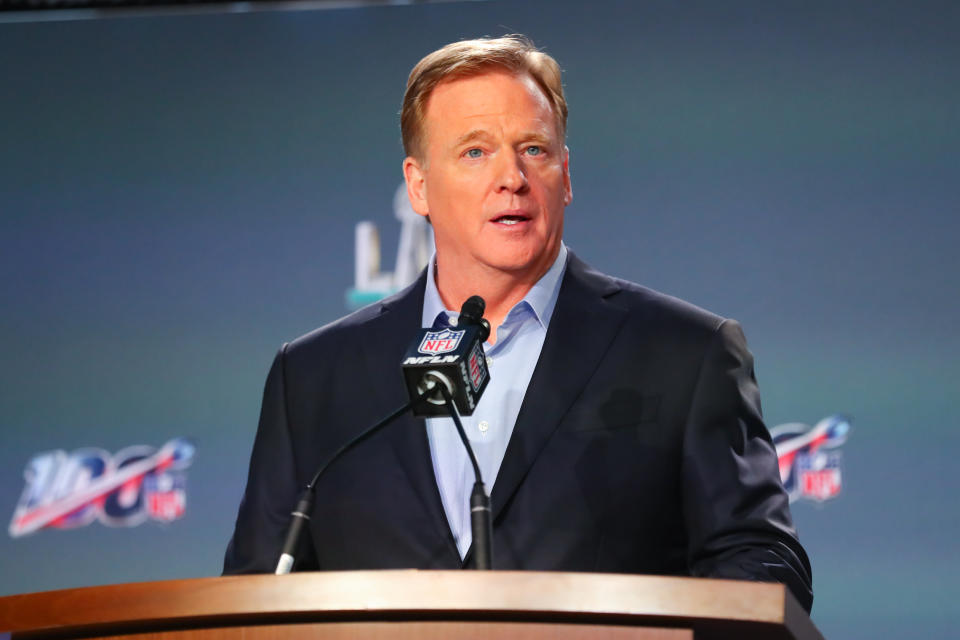Why the NFL CBA's new marijuana policy isn't a big win for players
Say what you will about the new collective bargaining agreement that was just approved by NFL players — and many people, both inside the sport and out, already are touting its negatives — but there are at least some benefits to its pending ratification.
One of them, of course, is that players will no longer be suspended for positive marijuana tests. This is a win for NFL players, many of whom would clearly prefer to treat their aches and pains with marijuana instead of painkillers.
But when asking how much of a win it really is, the trick is to remember that the devil, as with most things, is in the details.
Start with the fact that in lieu of suspension — by the way, players didn’t face suspension until their fourth failed test under the old CBA — players will now be fined anywhere from a half-week’s salary to three weeks’ salary for positive tests, depending on the number of violations. I don’t need to tell you that for players with real drug problems, the fact they’ll effectively be playing a brutal sport where the window to make money doesn’t last long for free is a tough pill to swallow.
Additionally, while annual testing will now be limited to an extremely short window (the first two weeks of training camp), the testing window under the prior CBA wasn’t necessarily oppressive. Previously, players who have never had a drug violation were only tested once a year, between April 20 (dead serious) and Aug. 9. Pass it once, and you could smoke all you want until the next year.
And finally, while it now takes 150 nanograms of marijuana in your system to trigger a positive test — significantly higher than Major League Baseball’s 50-nanogram threshold, for instance — the NFL’s previous threshold of 35 was still high enough to prevent players from triggering a positive test for second-hand smoke, meaning players weren’t just penalized for being around people who smoked.

So it becomes clear that the players’ primary motivation for passing the new CBA — which they barely did, 1,019 to 959 — likely lies with other benefits beside the new marijuana policy.
Like the additional percentage of the league profits they are set to receive, up from 47 percent to a maximum of 48.5 percent. Or the improved benefits for current and former players, not to mention the immediate minimum salary increase of $100,000 per player.
“We pick up a greater share of revenues, make significant gains to minimum salaries and increase our post-career benefits,” Cleveland Browns center J.C. Tretter, the new union president, said in a statement he released Sunday. “For players past, this deal reaches back in an unprecedented way to increase pensions, benefits and make resources available to them.”
Nowhere in Tretter’s statement did he mention the amended marijuana rules, which players definitely wanted but did not get without some complications during negotiations.
A source told Yahoo Sports that some on the league side had reservations because of the message it could send to the younger audience, not to mention the potential for the new measures to clash with federal and state laws, even as several states across the nation have legalized marijuana.
However, the NFLPA harped on the fact that additional mental health resources and treatment were a part of the deal — thus making the policy more treatment-based and less punitive — while also presenting an opportunity for the league to genuinely uphold and champion player wellness.
Think of Josh Gordon, the troubled Seattle Seahawks receiver whose very public battle with his demons led to his fifth suspension of the league’s drug’s policy in December. Gordon will still have to reapply to the league in order to return, but the next Josh Gordon will have a much easier time getting help while not missing games.
That is unequivocally a good thing, and it’s safe to say the players got a win in the new CBA with the relaxed marijuana rules. Just don’t think it was transformative, per se, or the biggest one they got.
More from Yahoo Sports:
